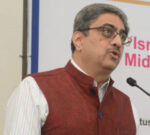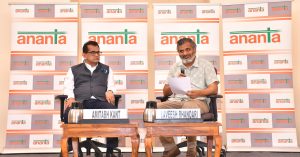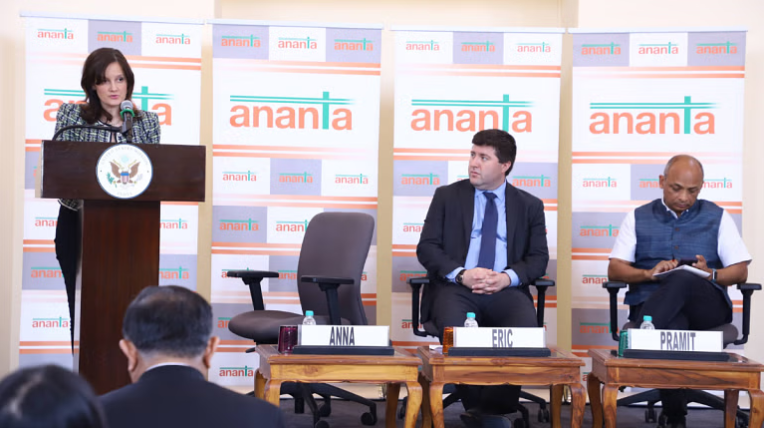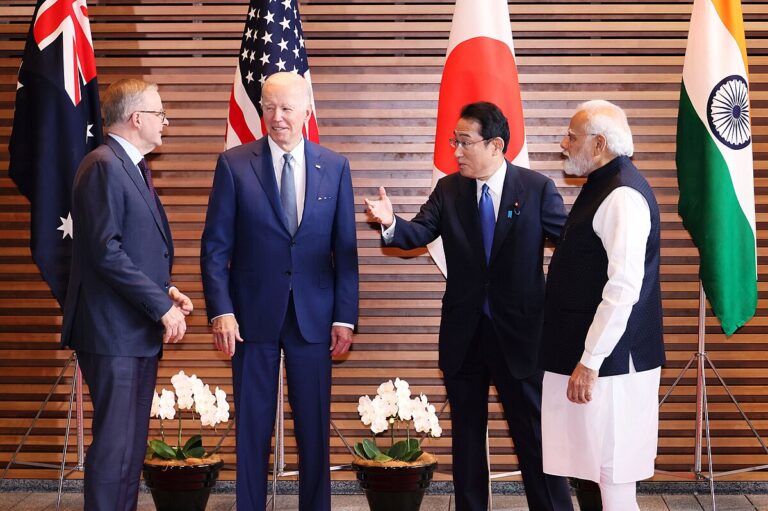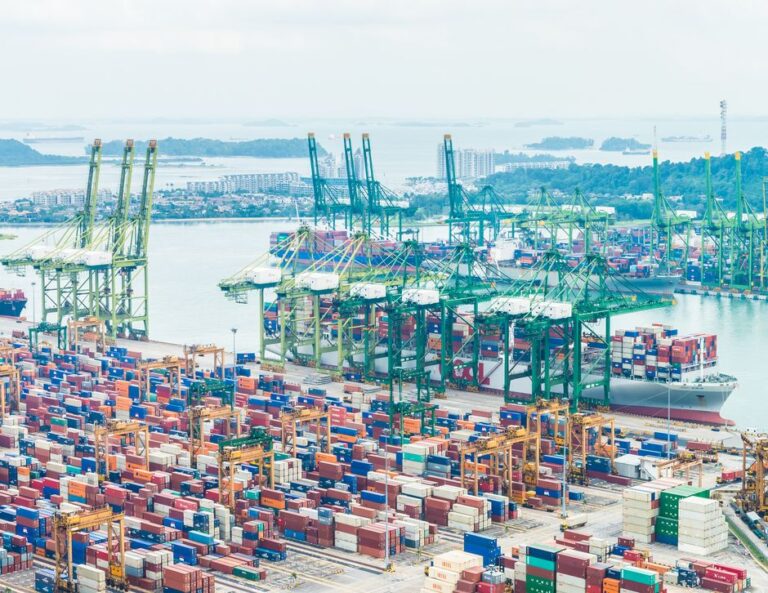H I G H L I G H T S
• Overview
• Developments in China
• Developments in Japan
• Developments in South Korea
• US-China Trade and Technology War
I Overview
China:
• China quietly increases number of deaths in Wuhan city due to Corona virus by 50%
• China’s Economy contracted in Q1
• Leadership meetings held in Beijing
• China’s purchase of Indian assets and changes in our FDI rules
Japan:
• Tokyo Olympics Postponed to 2021
• PM Abe declares state of emergency in Japan and unveils a stimulus package
• Japan announces assistance to Japanese firms moving out of China
• Japan’s trade surplus in March 2020 is 99% lower than a year ago
South Korea:
• South Korea holds Parliamentary elections
• South Korean firms too look to move production out of China
US-China Trade and Technology War:
• Differences sharpen between the two combatants
II Developments in China
China quietly increases number of deaths in Wuhan city due to Corona virus by 50%
China has quietly increased the number of people who died in Wuhan city in central China (now infamous for being the origin of the Corona virus) due to the virus by 50%. The new tally of deaths is 3869 an increase of 1290 from the previously released figure. There is no rational explanation of this sudden and significant increase, which in turn has once again focused international attention on whether the Chinese Government is telling the truth about the virus and the fatalities in China. International opinion has turned sharply against China for this reason and there are bound to be calls for an open and impartial investigation into the origin of the virus and the toll it has taken in China.
China’s Economy contracted in Q1
China’s economy contracted 6.8% in Q1 of 2020 as compared with the same period of 2019, clearly indicating how the Wuhan Virus and the subsequent steps and measures taken by Beijing had impacted economic activity. Incidentally, this is the first quarterly decline in GDP in China since record keeping began in 1992. However, the World Bank estimates that over the entire year 2020, China will exhibit GDP growth of 1.2%. There are also reports that factories in China have once again begun humming with activity. An important point to note is that the Chinese economy’s dependence on the external sector, particularly exports and imports, is now at just around 20% of its GDP, implying that she has decreased the proportion of GDP which comes from the external sector.
Leadership meetings held in Beijing
China’s top leaders met last week in Beijing to take stock of the situation in the post Covid-19 world. The Politburo Standing Committee the 7-man top leadership council of that nation first met on 15 April and two days later the 25 members of the Politburo met to discuss epidemic prevention and control measures. Both meetings were chaired by China’s top leader Xi Jinping. China’s top leaders gave themselves, as can be expected, a pat on the back for the way they had tackled the pandemic but also cautioned themselves not to let their guard down as there could still be an increase in the numbers of people affected by the virus. These meetings are important since there are also reports that the leadership of Xi is being questioned. Such threats normally would come from other top leaders who would think that they are better suited to leading China than Xi. There can be no doubt that the unfavorable international reaction to China stemming from the spread of the Wuhan epidemic and the negative impact this has had on China’s image and standing will put pressure on Xi’s leadership. One will have to wait and watch this space.
China’s purchase of Indian assets and changes in our FDI rules
China’s central bank – the People’s Bank of China – hiked its stake in HDFC last week from 0.8% to 1.1% creating a furor in the public space. Government of India reacted by changing our FDI rules so that Chinese investment into India would have to come through the Government route and closed the option of the automatic route. Such measures on national security considerations are taken by all countries and there is nothing out of the ordinary if India takes steps such as this one. It is the prudent thing to do.
III Developments in Japan
Tokyo Olympics Postponed to 2021
The International Olympic Committee (IOC) and the Tokyo Organising Committee of the Olympic Games unanimously decided to postpone the Games from 2020 to 2021. Firm dates for the postponed Games have not yet been decided but a decision is expected by May 2020. The process to deliver the Games in 2021 is overseen by a Joint Steering Committee which will also decide how to take measures to address the potential impact of Covid – 19 and incorporate them into the Games delivery plan. Tokyo had been almost ready to host the Games but its postponement enables the hosts to exhibit how human endeavor can continue, with adequate precaution, in the Corona virus age. A point to note is that never before have the Olympic Games been postponed or cancelled except for war.
PM Abe declares state of emergency in Japan and unveils a stimulus package
On 7 April 2020, PM Abe announced a state of emergency in large parts of Japan due to spread of corona virus cases thereby reversing an earlier policy of no lockdown. Later, on 16 April PM Abe extended the emergency provisions to cover all of Japan. The emergency measures are to be in place for a month where human-to-human contact is to be minimal. The declaration would largely depend on voluntary compliance and public transit continues across the country. Testing for the virus has also been increased substantially. Simultaneously, PM Abe also unveiled a record 108.2 trillion Yen (USD 992 billion) stimulus package to shield the economy. This amounts to 20% of Japan’s GDP indicating how serious a downturn could occur due to the lockdown provisions in place.
Japan announces assistance to Japanese firms moving out of China
Part of the stimulus package announced by PM Abe is a sum of 220 billion Yen (USD 2 billion) of assistance to Japanese firms intending to move production out of China back to Japan and another smaller amount of 23.5 billion Yen (USD 0.2 billion) to move their manufacturing base to other countries. Thereby, the Japanese Government has given a clear indication that it would like firms to diversify their operations out of China. The trend to move manufacturing out of China had started well before the Wuhan Virus but is likely to get accelerated now. Whether India can take advantage of this move is something we shall have to wait and see. In particular, our State Governments need to move quickly to attract some of this investment.
Japan’s trade surplus in March 2020 is 99% lower than a year ago
Japan’s trade surplus in March 2020 was 99% lower than that a year ago in March 2019. This year’s March trade surplus came in at just 4.9 billion Yen as compared to 517 billion Yen in March 2019. Naturally, this exhibited the impact of the Corona / Wuhan Virus on all economies across the globe.
IV Developments in South Korea
South Korea holds Parliamentary elections
In the midst of the Corona Virus crisis across much of the globe, South Korea held Parliamentary elections on 15 April 2020 which witnessed a 66.2% voter turnout a figure which was higher than any other in a parliamentary election since 1992. The holding of the election also was testimony to how effectively South Korea has combated the Wuhan Virus. The election led to a sweeping victory for President Moon Jae-in’s Democratic Party, which along with its smaller affiliate parties won 180 out of 300 parliamentary seats. This is the biggest majority in parliament for any political party since 1987 showing that President Moon has been given a ringing endorsement from the electorate for his handling of the Virus crisis.
South Korean firms too look to move production out of China
As a result of the loss of faith and trust in China’s government stemming from the Wuhan Virus pandemic, South Korean firms too are looking to relocate production out of China. India has an opportunity here which comes only once in a generation.
V US-China Trade and Technology War
Differences sharpen between the two combatants
The current hiatus in the trade and technology war between the United States and China due to the outbreak of the Wuhan Virus pandemic, will not last long as the issues dividing these two nations pile up. Not only has the origin and name of the virus become a bone of contention between the two, but China has also blocked all discussions on this subject at the UN Security Council. With the US having named China as a strategic competitor, the trade and technology war is set to resume once the nations come out of the current pandemic driven public health and economic emergency.


